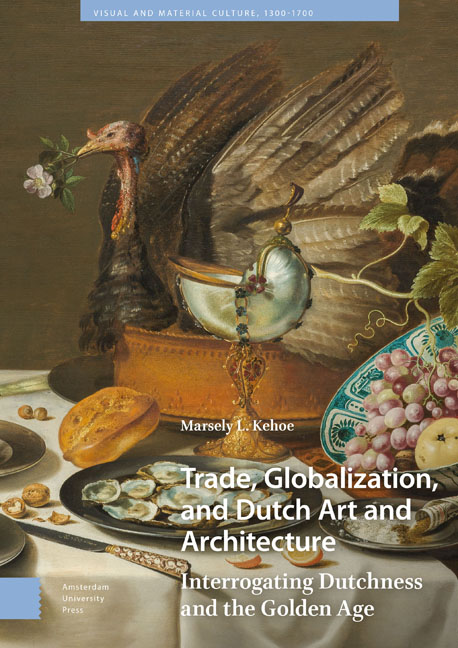Book contents
- Frontmatter
- Contents
- List of Illustrations
- 1 Introduction: Grasping at the Past
- 2 The Gilded Cage: Dutch Global Aspirations
- 3 Gathering the Goods: Dutch Still Life Painting and the End of the “Golden Age”
- 4 Dutch Batavia: An Ideal Dutch City?
- 5 Simplifying the Past: Willemstad’s Historic and Historicizing Architecture
- 6 Conclusion: The “Golden Age” Today
- Works Cited
- Acknowledgements
- Index
6 - Conclusion: The “Golden Age” Today
Published online by Cambridge University Press: 13 February 2024
- Frontmatter
- Contents
- List of Illustrations
- 1 Introduction: Grasping at the Past
- 2 The Gilded Cage: Dutch Global Aspirations
- 3 Gathering the Goods: Dutch Still Life Painting and the End of the “Golden Age”
- 4 Dutch Batavia: An Ideal Dutch City?
- 5 Simplifying the Past: Willemstad’s Historic and Historicizing Architecture
- 6 Conclusion: The “Golden Age” Today
- Works Cited
- Acknowledgements
- Index
Summary
Abstract: The conclusion considers non-imperial efforts to revise the Dutch “Golden Age” into something wholly Dutch. This chapter includes a brief consideration of the current celebration of a bucolic, quaint, and imagined Dutch culture in Holland, MI, in the annual Tulip Time festival, by a conservative religious community that migrated to the United States in the nineteenth century in a rejection of Dutchness. In an age of growing multiculturalism and cultural nationalism, and escalating clashes over what “Dutch” means, the question of how and why the past is revised to serve the present remains imperative.
Keywords: Tulip Time, nostalgia, community, Dutch diaspora
In this book, I’ve explored how the seventeenth-century Dutch “Golden Age” has been revised by subsequent generations to deliberately forget negative aspects of the period, so that reminders of this period are positive and innocent. Through four case studies, we’ve seen that just as the Dutch Republic was established in the late sixteenth century, the Dutch showed their desire to control world trade, through legal argument and piracy. After immense successes in the first half of the seventeenth century, Dutch trade domination began to slip away, and instead the Dutch redefined their success as the owners, rather than importers, of rich goods. In the eighteenth-century colonial city, Dutch behavior threatened to expose the stratification of Dutch domestic and colonial society, and so this behavior was redefined as unDutch. And as the twentieth century progressed, a multicultural city has downplayed its dynamism in favor of a less-diverse, Dutch-dominated view of the past. Instead of domination we see freedom, instead of trade we see wealth, instead of hierarchy we see egalitarianism, and instead of racial conflict we see tolerance. The material and visual culture and the built environment that were created in the early modern Dutch Republic, and later examples that evoke this “Golden Age,” are symbols, in Maurice Halbwachs's formulation, around which many Dutch people tell and retell their stories. But these examples also lay bare how these stories have changed over time, which means that both the positive and negative aspects of the “Golden Age” can be revisited and reconsidered, in all their messy complications.
- Type
- Chapter
- Information
- Trade, Globalization, and Dutch Art and ArchitectureInterrogating Dutchness and the Golden Age, pp. 207 - 212Publisher: Amsterdam University PressPrint publication year: 2023

